Letter from the Executive Director
For 10 years, the Daugherty Water for Food Global Institute at the University of Nebraska has worked toward one audacious goal: a water and food secure world. While we have yet to achieve the vision shared by Bob Daugherty and others who are passionate about solving this complex challenge, we have made important and measurable progress.
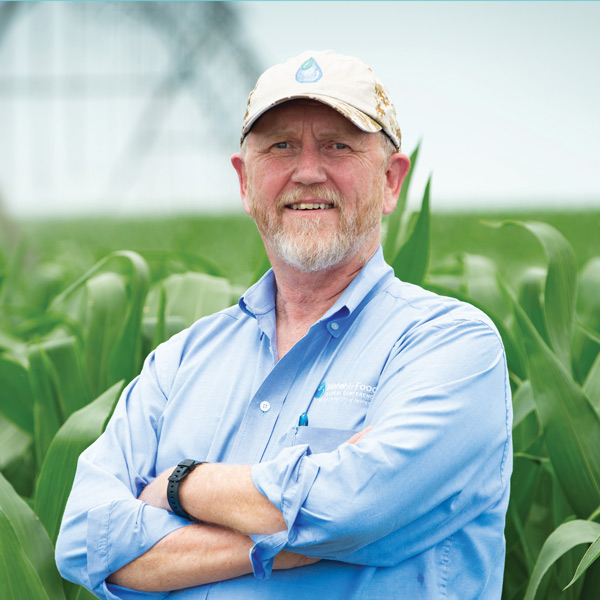
Our board leaders help guide our success, and we were fortunate to add the University of Nebraska’s new President, Ted Carter, as chair this year. We also added a new director, Felicia Marcus, former chair of the California State Water Resources Control Board and current member of The Water Policy Group.
Water and food security have become an even more important global priority due to the COVID-19 pandemic – a health crisis that has affected many aspects of our daily lives. This includes an unexpected and extreme shock on our agriculture, food and water systems. Farmers, ranchers and dairy producers, many still recovering from massive floods, droughts or severe weather, are now dealing with further market turmoil. As with other global crises, the most adversely affected are the poorest and most vulnerable segments of the population, including refugees, the displaced, and those in areas of conflict, where access to food and water is a constant struggle. Like many of our partners, we have worked remotely from spring through summer, collaborating, promoting research and continuing outreach to advance our mission.
A generous and strategically important gift from Dr. Anne Hubbard and the Claire M. Hubbard Foundation established a new program to address some of the state’s most pressing public health issues associated with climate, water and agriculture. The new Water, Climate and Health Program is based in the University of Nebraska Medical Center’s College of Public Health and is closely aligned with the Institute of Agriculture and Natural Resources and the Daugherty Water for Food Global Institute. As part of this program, we were very pleased this year to welcome Jesse Bell, PhD, Claire M. Hubbard professor of health and the environment, to the DWFI leadership team.
Like other organizations planning international events, we had to cancel the 2020 Water for Food Global Conference due to travel restrictions. The success of our global conferences the past decade has helped establish DWFI as a respected convener, enabling us to offer a webinar series this fall with partners, including the World Wildlife Fund, the Water Policy Group and the Irrigation Innovation Consortium. We are also attracting top talent for keynote speaking, such as Louise Mabulo, a rising leader named Young Champion of the Earth by the United Nations Environment Program and a Forbes 30 Under 30 - Asia 2020 honoree.
Along with the World Bank, the International Water Management Institute, the Global Water Partnership and others, we developed and hosted a two-part webinar series this summer on “Accelerating Inclusive Farmer-led Irrigation.” Both webinars had over 400 active attendees from more than 100 countries and hundreds more have viewed the webinars on DWFI’s YouTube Channel, reaching stakeholders that our in-person conference could not. Closer to home, the Nebraska Water Center, along with the North Platte Natural Resources District, hosted the 2020 Nebraska Water Conference online in August.
We have continued progress on a number of international projects, including research on strategies for sustainable irrigated agriculture for the government of Kazakhstan; development of a drought and soil moisture monitoring tool in the MENA region; advancement of eddy covariance crop evapotranspiration tools; and, review and analyses of irrigation business models for smallholder farmers in Rwanda, which we are aiming to expand to other countries with a recent $1 million grant from a new partner, the International Fund for Agricultural Development.
Our work in Nebraska has also expanded and matured. A prime example is the Ogallala Water Coordinated Agriculture Project, led by a multi-state team including DWFI’s Nebraska Water Center. This USDA NIFA-funded effort has brought together producers, scientists, groundwater managers, students, and public and private organizations to support research and adoption of practical approaches to sustain the Ogallala Aquifer.
Prior to the onset of the COVID-19 crisis, we hosted numerous events here in Nebraska and around the world. At home, we led and participated in workshops and meetings on a variety of topics, including degradation of water quality, focusing on nitrate level monitoring and mitigation. Especially notable was the well attended 2019 Nebraska Water Conference, held in Norfolk, Nebraska. It attracted producers, NRDs, private enterprises, public agencies, universities and colleges, politicians and students. We also organized a Nebraska farm visit for FCC Chairman Ajit Pai.
Further afield, we launched the Nebraska Water Productivity Report at the World Food Prize in Des Moines; presented a keynote address at the World Irrigation Forum in Bali; and, participated in World Water Week in Stockholm.
Together with university leaders, we shared testimony with the Nebraska Legislature in support of a budget appropriation to advance water research in the state. Nebraska’s water resources support our $25 billion agricultural economy, sustain wildlife and the environment, and, of course, provide what we need for healthy daily living. Improving how we manage water can make a tremendous difference in Nebraska’s economy and the quality of life for our citizens – a fact recognized when Governor Ricketts signed Nebraska’s 2021 budget bill in August, which included $500,000 designated annually to the institute to further water research in the state. While it is not surprising given the recognition of the importance of water resources, it is humbling to see this level of commitment. The institute will make the most of this investment to develop innovative water security solutions.
Educating and cultivating future leaders and researchers in water management and agriculture are essential for us to deliver on our mission. To bring many different perspectives to these complex challenges, DWFI fosters innovative research across many different disciplines within the university system through our student research support program. Many of our students have graduated to pursue doctoral or post-doctoral programs, launch entrepreneurial start-ups, or have joined prestigious organizations and agencies that are shaping the future of water management. You will see an exciting variety of student research projects in this report, which students shared through videos and papers since we were unable to host our annual faculty and student forum in the spring.
If you’ve already heard about many of these accomplishments, it’s due to our communications efforts, which are amplified by the retweets, shares and engaging comments of our wide stakeholder network. Through videos, presentations, postings, news releases, website updates, podcasts, photos, the monthly e-newsletter, and this annual report, we strive to share the exceptional work of our staff, faculty, students and colleagues.
I hope you will enjoy discovering more about our progress and review the historic impacts we have achieved in our first decade. As COVID-19 has made clear, we have much more work to do. It will take all of us, working together, to achieve a world with ample water for all of our needs and enough nutritious food to ensure everyone’s good health and quality of life.

Executive Director
Robert B. Daugherty Water for Food Global Institute at the University of Nebraska
Annual Report + Progress Report
Featured Sections
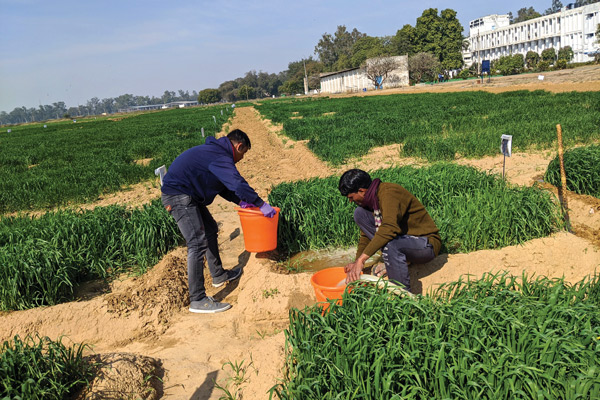
Research
The Daugherty Water for Food Global Institute conducts and supports research to develop innovative solutions for achieving water and food security at home in Nebraska and around the world.
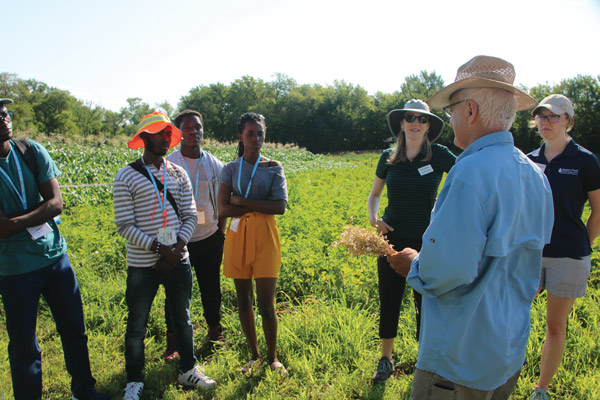
Education
One of the most important ways DWFI works to achieve its mission is by sharing knowledge with its partners and stakeholders, as well as by educating the next generation of water leaders, resource managers, farmers, entrepreneurs, government agents and nonprofit directors.
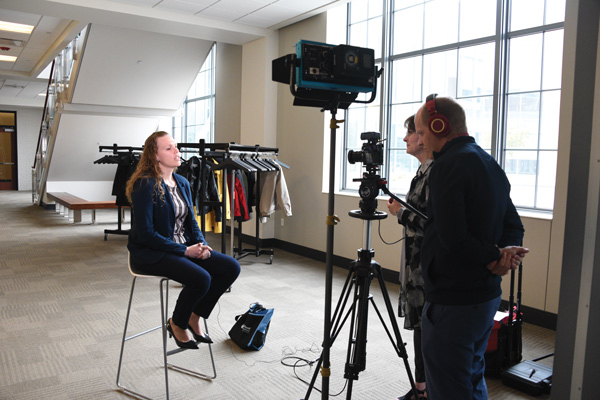
Communication
The communications team expanded DWFI’s reach around the globe through posts, blogs, news releases, workshops and events, website updates, publications and more than 30 videos, including a new DWFI overview video highlighting our research, policy and education progress.
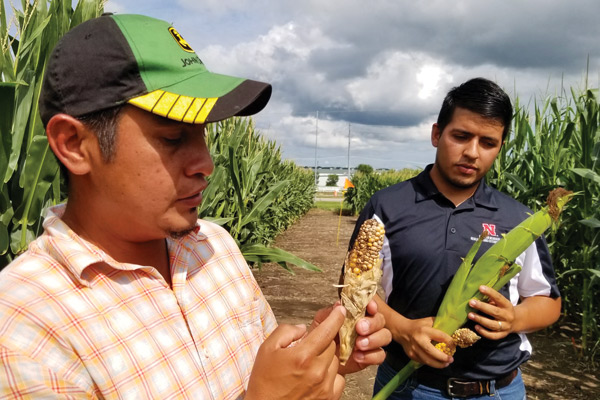
Development
The University of Nebraska received a $5 million gift from Dr. Anne Hubbard and the Claire M. Hubbard Foundation to create a new program addressing some of Nebraska’s most pressing public health issues associated with water and climate.
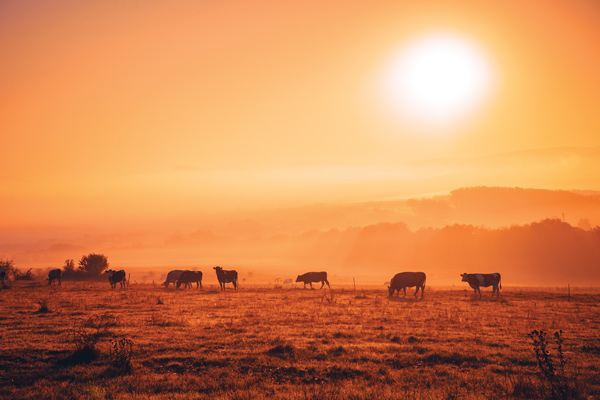
10-Year Progress Report
The Daugherty Water for Food Global Institute is in full stride, working in concert with a powerful network of state, national and global partners who are all committed to ensuring water and food security for future generations. It is nearly impossible to compile a list of all the impactful projects the institute has developed and supported in the past decade.
2020 Annual Report
COOKIE USAGE:
The University of Nebraska System uses cookies to give you the best online experience. By clicking "I Agree" and/or continuing to use this website without adjusting your browser settings, you accept the use of cookies.

